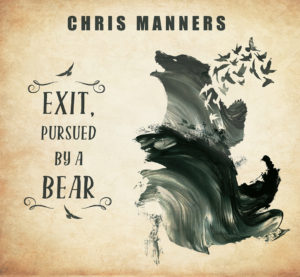This album lived only in memory until I was lucky enough to reacquire it last year. It’s long been out of print, and has never been released on CD but, fortunately, it’s available on YouTube and elsewhere on-line.
It doesn’t disappoint. Here are some of Leon’s best and best known compositions: Don’t get married girls, Man who puffs the big cigar, Abiezer Coppe. All three principals — Bailey, Rosselson, plus long-term chum and collaborator Martin Carthy — were in their pomp when recording it in 1976; old enough to have developed mature style and mastery of their craft, but young enough to be full of bite and energy. And it’s still asking questions to which we don’t have good enough answers.
Listening again, some things are instantly familiar: the torrent of words, for one; Roy Bailey’s soaring voice, for another — was there ever anyone who conveyed emotion as well as he did without resorting to histrionics?
I hadn’t noticed that the songs are sequenced in pairs, beginning with Let your hair hang down and Single in the spring, both asking whether it’s better to be in love or lonely. Then the loneliness within marriage on Invisible married breakfast blues and Don’t get married girls; I never used to care for Val Bailey’s voice on Invisible, but now hear a quiet desperation that raises goosebumps.
A forgotten gem next: In the park, Roy at his most heart-rending as he sings about the loss of childish innocence and sense of possibility, after which Leon’s firmly into dystopia in Once when I was young, as the bureaucrats wall him in. That’s one song that feels dated — we’re better at workplace rights, flexibility, gender and racial diversity than when the song was written. But then, Leon’s was one of the loudest voices demanding the changes that have come about in the last fifty years.
Side 2 is less domestic. Big cigar and We sell everything are about the cruel downsides of capitalism. The latter’s a virtuoso piece of word-bending, also marked out by Carthy’s pile-driving guitar; a few years later he would tune down, restrain the big thumb-beat and play more freely, but here he propels the song with an insistence that matches its remorseless sales pitch.
And finally two songs about how organised religion brings denial and repression, not freedom and fulfilment: Abiezer Coppe and Stand up for Judas, with a setting of William Blake’s poem The garden of love between them, ‘. . . priests in black gowns were walking their rounds / binding with briars my joys and desires.’
Stand up for Judas was always the tricky one. I was happy to nod along with the sentiments on the rest of the record, having had no relevant first-hand experience. But in 1976 I was a schoolboy in a chapel-going household where Jesus Christ Superstar was considered daring, and here was a song which questioned all of that. Worse, it had a chorus and a rousing accompaniment of pianos and horns and drums that swept me along to difficult places and risked a dawn raid from the Methodist Inquisition. That thought provoking quality’s something Leon would, no doubt, be proud of. Rightly so.

